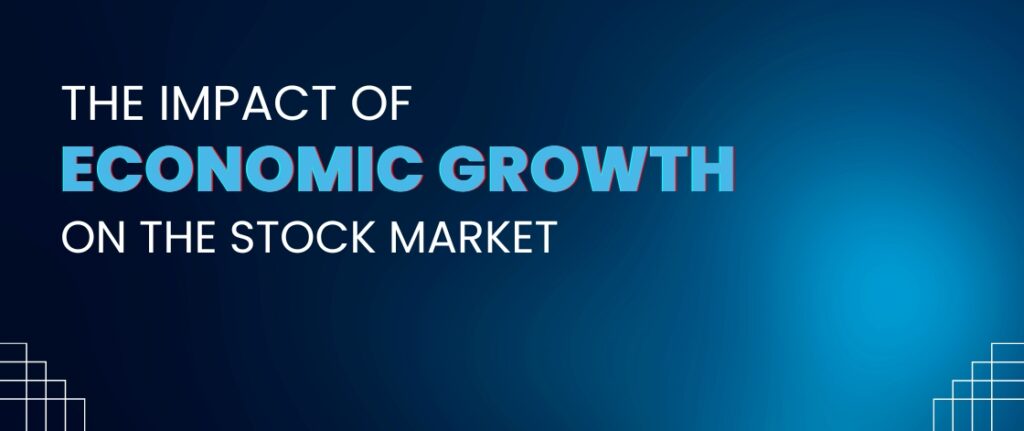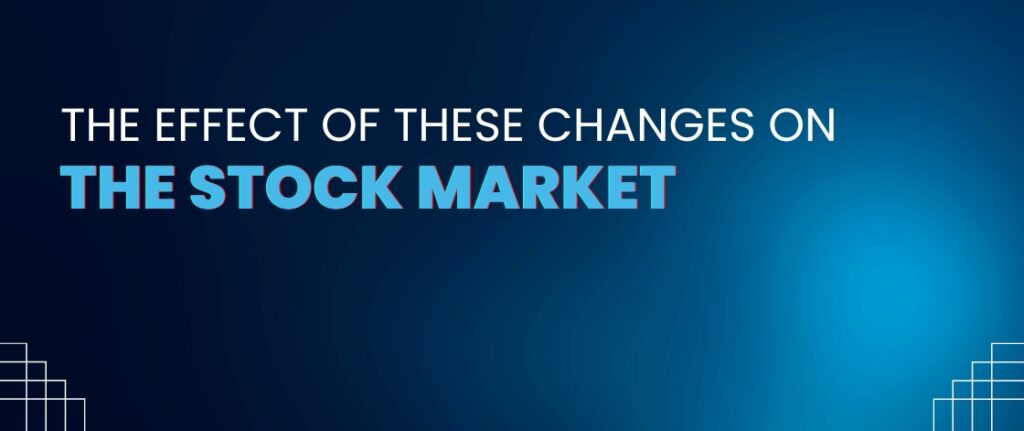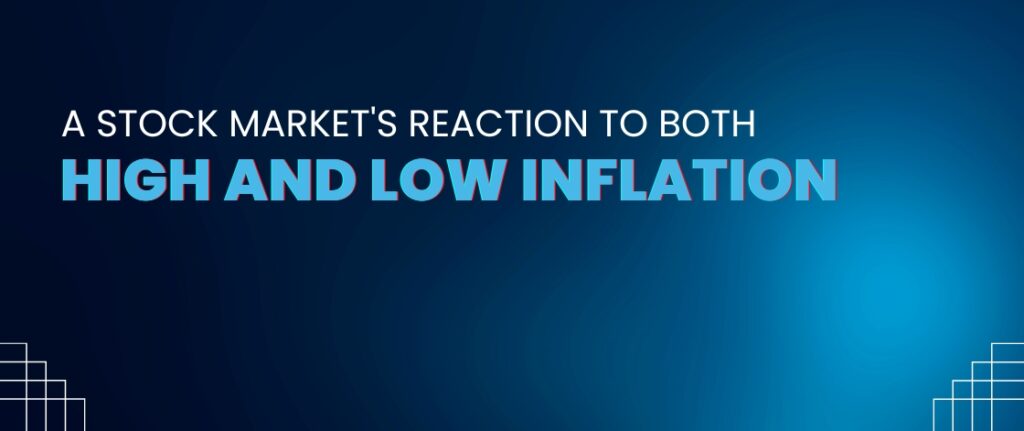
Macroeconomic indicators are measures of a country’s overall economic health and performance. Common examples are indicators such as Gross Domestic Product (GDP), inflation, unemployment rate, interest rates, consumer expenditure, government spending, and international commerce. Evaluating macroeconomic indicators can help economists and policymakers understand the economy, identify trends, and make monetary and fiscal policy decisions. Furthermore, these indicators can be used by investors and enterprises to make informed decisions.
Macroeconomic factors such as interest rates, inflation, and economic growth can all have a significant impact on stock market performance.
In this article, we will look at how these variables affect the stock market, how interest rate fluctuations affect it, and how high and low inflation affect it. Furthermore, we will examine how economic growth influences the stock market and how it responds to these changes. Knowing these fundamental ideas will help investors make more educated stock market decisions.
Let us begin by discussing macroeconomic factors that impact the stock market.
Impact of Macroeconomic Factors on the Stock Market

Macroeconomic indicators are critical for investors to determine the economy’s health and forecast future market developments. These statistical metrics give information about many elements of the economy, such as inflation, economic growth, and unemployment.
The following are some of the most important macroeconomic variables influencing the stock market.
- Economic Development- There is a significant impact of economic development on the stock market. Companies prosper when the economy grows, resulting in more corporate profits. As a result, investors are more likely to invest in the stock market, perhaps leading to an increase in stock prices. Investors become more cautious and less inclined to engage in the stock market as the economy slows or enters a recession. As a result, stock values may plummet.
- Inflation- Another macroeconomic element that might have an impact on the stock market is inflation. When the inflation rate is strong, the cost of products and services may rise. This can lead to a drop in corporate earnings, leading to a drop in stock prices. Yet, if corporations can pass on the additional expenses to customers through higher pricing, the stock market may be less affected.
- Rates of Interest-Interest rates have a huge impact on the stock market. When interest rates are low, borrowing costs are reduced, which can promote consumer spending and corporate investment. This can lead to higher corporate earnings, which can contribute to a rise in stock prices. When interest rates are high, borrowing costs rise, which can reduce consumer spending and business investment. This can lead to reduced firm profitability and stock prices.
- Policies of the Government-The stock market can also be influenced by government policy. Policies such as tax cuts or stimulus expenditures can promote consumer spending and company investment, resulting in increased corporate earnings and stock values. On the other hand, policies that restrict economic activity or raise taxes can result in lower company earnings and stock values.
Macroeconomic variables may significantly influence the stock market. Economic growth, inflation, interest rates, and government policies are all important aspects to consider while investing in the stock market. Understanding how these factors affect the stock market can help investors make informed investment decisions.
Now let’s find out how the stock market reacts to high and low inflation.
If you need some ideas about what to read next, here they are:
A stock market’s reaction to both high and low inflation
Inflation is a significant macroeconomic element that influences the stock market and reacts differently to high and low inflation.
High Inflation
When inflation is strong, it indicates that the prices of goods and services are rising faster than the value of money. This can lead to a decline in consumer purchasing power, leading to a decrease in consumer expenditure. As consumer spending falls, business earnings fall, causing stock prices to fall.
Low Inflation
When inflation is low, it signifies that the prices of goods and services are not rising rapidly. This can lead to an increase in consumer purchasing power, which can increase consumer expenditure. Increased consumer spending can increase company profits, leading to a rise in stock prices.
Generally, excessive inflation harms the stock market, whereas low inflation has a favorable impact. However, inflation’s influence on the stock market can vary based on other macroeconomic factors such as interest rates and government policy. While making stock market investments, investors should keep an eye on inflation rates and other macroeconomic indicators.
In the next section, we will talk about the impacts of economic growth on the stock market.
The impact of economic growth on the stock market

There are several impacts caused by economic growth on the stock market, and they are as follows.
Economic development is a critical element influencing the stock market. Economic growth is a sustained rise in the production of goods and services within an economy. The stock market’s success is inextricably linked to the economy’s overall health, and economic growth is a major measure of this health.
Businesses are more lucrative when the economy is rising, which can contribute to a rise in corporate earnings. As corporate earnings rise, investors become more confident about the company’s future prospects, which can increase stock prices. This is because investors are ready to pay a higher price for a share of a company’s earnings if those earnings are expected to expand in the future.
Moreover, economic development can result in an increase in consumer spending, which can help businesses that rely on consumer spending for revenue. For example, retailers, restaurants, and consumer products industries profit from increased consumer spending. This might lead to a rise in their stock.
Let us now look at the implications of all of the above-mentioned concerns on the stock market.
The Effect of these Changes on the Stock Market

Many macroeconomic factors, such as interest rates, inflation, and economic growth, have an impact on the stock market. This is an examination of how the stock market responds to changes in key variables, including historical data and trends.
1.Interest Rates: Interest rates have a large impact on the stock market. Borrowing costs are lower when interest rates are low, which can lead to higher corporate investment and consumer expenditure. This, in turn, can lead to increased company profitability and stock values. When interest rates are high, borrowing costs increase, which can lead to lower corporate investment and consumer expenditure. This might result in decreased business profitability and stock values.
Lower interest rates have historically boosted the stock market. After the 2008 financial crisis, the Federal Reserve cut interest rates near zero. The decreased borrowing rates were interpreted by investors as a favorable indicator for corporate profitability, resulting in a large boost in stock prices. When interest rates soared in the late 1970s and early 1980s, the stock market faltered, with the S& P 500 falling more than 27% in 1981.
2.Inflation: Inflation is the gradual increase in the prices of goods and services. Inflationary pressures can reduce consumer spending, reducing business profitability and stock values. Low inflation, on the other hand, can lead to more consumer spending, better corporate profitability, and higher stock prices.
Historical evidence reveals that excessive inflation has a detrimental impact on the stock market. For example, during the 1970s, inflation surged significantly while the stock market fell precipitously. In contrast, the stock market has historically performed well during periods of low inflation. For example, inflation was low in the 1990s, and the stock market enjoyed a long bull market.
3.Economic Growth: Economic growth is an important element influencing the stock market. An expanding economy generally results in more business earnings, increased consumer spending, and higher stock values. A sluggish or contracting economy, on the other hand, might result in reduced business earnings, lower consumer spending, and lower stock prices.
According to historical evidence, the stock market does well during periods of economic expansion. For example, the American economy saw considerable economic growth throughout the 1980s and 1990s while the stock market experienced a protracted bull market. In contrast, the US economy had a steep contraction, and the stock market witnessed a considerable decrease during the Great Recession of 2008-2009.
The Bottom Line
The stock market is heavily influenced by macroeconomic variables such as economic growth, inflation, interest rates, and government policies. Investors can make better decisions if they understand these critical factors. Economic growth, inflation, and interest rates all have different effects on the stock market, with high inflation harming the market and low inflation supporting it. Economic growth leads to increased firm earnings, which enhances investor confidence and drives up stock values. While investing in the stock market, investors should also monitor macroeconomic statistics. These effects have an unparalleled impact on stock market performance.
Join Our Newsletter
Elevate your financial game & join the ranks of elite investors with Secvolt’s exclusive newsletter.
Join Our Newsletter
Elevate your financial game & join the ranks of elite investors with Secvolt’s exclusive newsletter.
Don’t just dream of wealth; achieve it with Secvolt. Schedule a call today for personalized guidance on your investment strategy and join the ultra-successful.
Ready to unlock your wealth’s truest potential & cherish affluence?
Secvolt, our hedge fund, sets the bar high with a record-breaking performance of 262% returns in 2022. With the brilliance of our highly advanced quant models and the efficiency of our risk mitigation protocols, we are yet to see a loss!
We’re the perfect ally to help you succeed financially and build the lasting legacy you have always aspired for.
Get in touch today. YOUR LEGACY AWAITS YOU…






